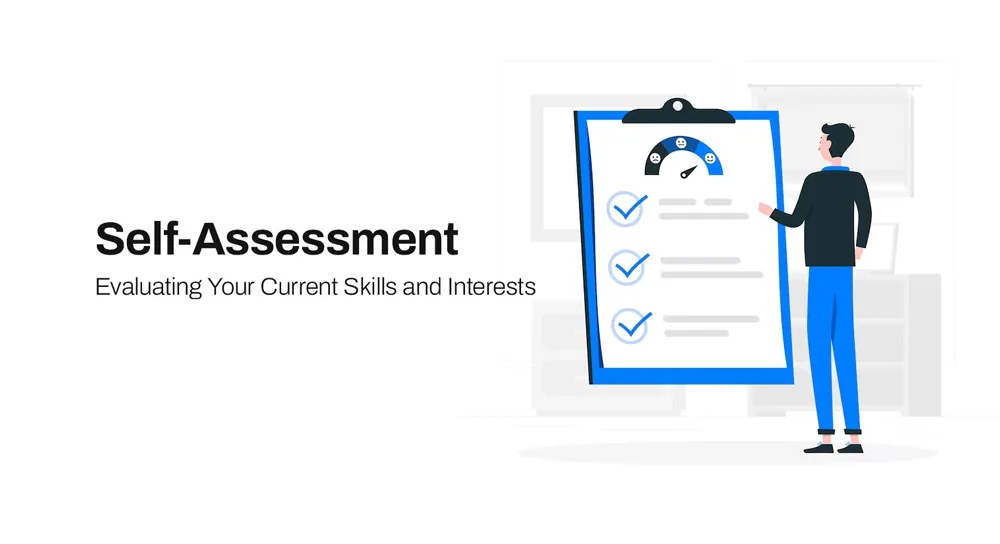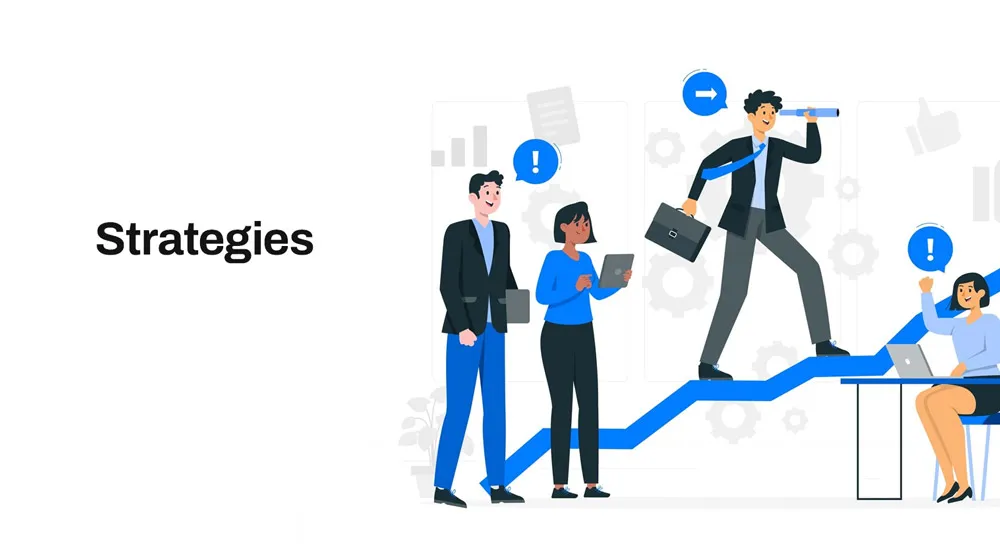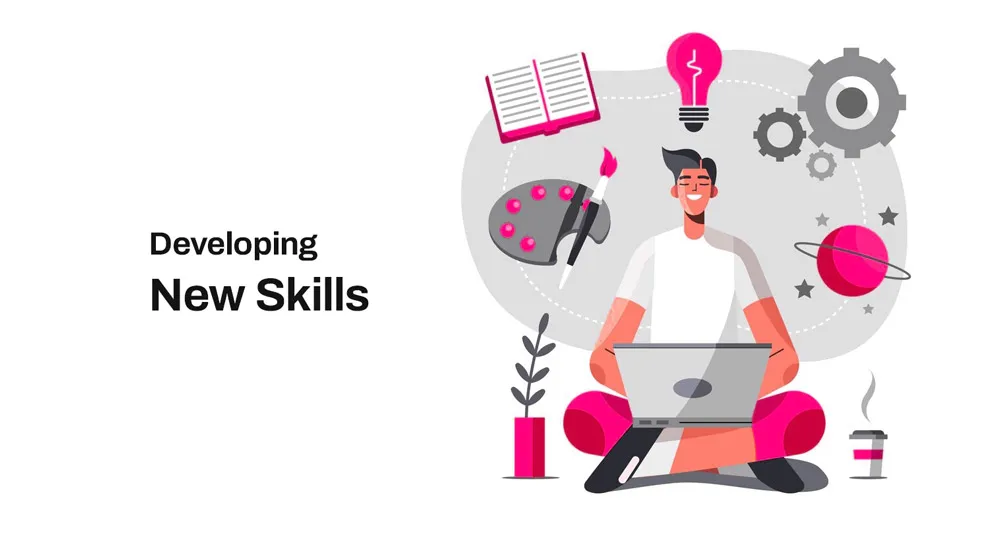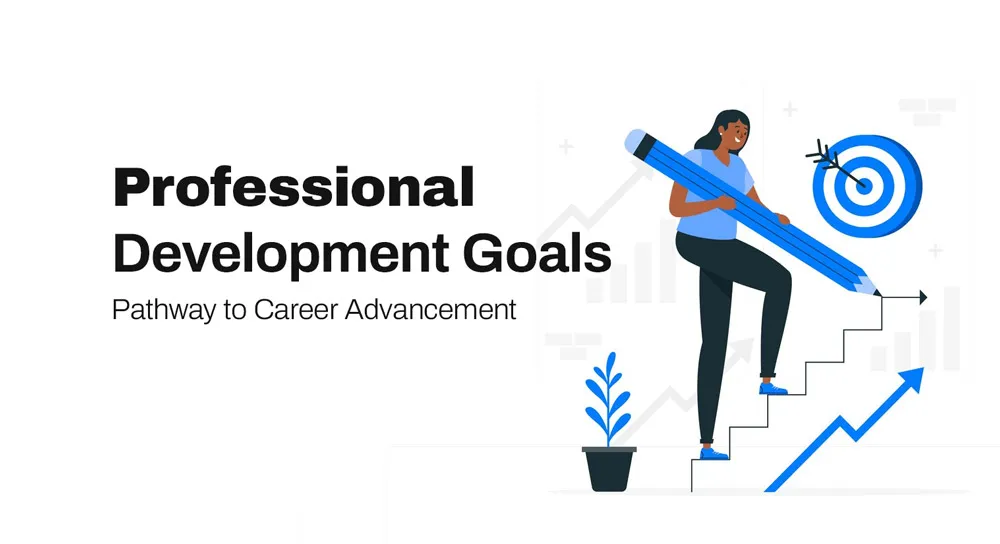In the fast-paced world of work, nailing down some solid Professional Development Goals is key. Whether you’re gunning for a career boost or just want to keep up in your game, having clear-cut goals is the way to go. Let’s break it down: set goals that you can actually work on, make them strategic, and watch your skills level up. This guide’s got your back – we’ll dive into why these Professional Development Goals matter, give you a no-nonsense plan to cook up your own roadmap, and throw in some examples to get those goal-setting gears grinding. Ready to step up your game? Let’s roll.
Table of contents
- Understanding the Significance of Professional Development Goals
- Crafting Your Professional Development Plan
- Step 1: Self-Assessment – Evaluating Your Current Skills and Interests
- Step 2: Goal Setting – Defining Your Aspirations and Objectives
- Step 3: Strategies – Developing Actionable Plans to Achieve Your Goals
- Step 4: Resource Gathering – Identifying Tools and Opportunities for Growth
- Step 5: Timeline Creation – Establishing Deadlines and Milestones
- Step 6: Progress Tracking – Monitoring and Reviewing Your Journey
- Examples of Professional Development Goals
- Developing New Skills in Your Field
- Enhancing Communication and Interpersonal Skills
- Taking on Leadership Responsibilities
- Expanding Your Professional Network
- Obtaining Additional Certifications or Degrees
- Consuming Industry-Relevant Media
- Prioritizing Job Satisfaction and Work-Life Balance
- Enrolling in Relevant Courses or Training Programs
- Shadowing Professionals from Other Departments
- Seeking Mentors and Guidance
- Conclusion

Understanding the Significance of Professional Development Goals
Setting professional goals is crucial for your career and personal satisfaction. When you have clear targets, you get a better grip on where you want your career to go. It’s like having a roadmap for your ambitions. These goals help you:
Gain Clarity and Direction
Setting goals for professional growth gives your career a clear sense of direction and purpose. When you define your long-term visions and aspirations, it helps you align your short-term objectives. This alignment guides you towards your desired destination. With a sharp focus, you can make informed decisions and take intentional actions, propelling your career forward.
Foster Skill Enhancement
Stay sharp in the ever-evolving job scene by keeping your skills on point. Set goals to up your professional game, take stock of what you’ve got in your toolkit, and pinpoint where you can level up. Actively beefing up your skills keeps you in the game, ready for whatever comes your way.
Enhance Job Performance and Satisfaction
Investing in leveling up your skills isn’t just good for you; it’s a game-changer for your workplace too. When you make a habit of chasing improvement, you’re not just boosting your own game—you’re cranking up the performance dial for the whole team. More skills mean more wins, and that’s a win-win for you and the company.
Unlock Career Advancement Opportunities
Setting professional development goals cracks open doors to fresh career paths. When you show you’re all in for personal growth, bosses start eyeing you up for promotions, fatter paychecks, and more on your plate. Companies dig folks devoted to leveling up because they inject new views, diverse skills, and a hunger for getting better into the mix.
Crafting Your Professional Development Plan
If you’re serious about leveling up in your career, you gotta whip up a solid game plan for professional growth. Think of it as your roadmap—lay out what you’re good at now, where you wanna go, and the specific moves you’re gonna make to get there. Keep it straightforward and focused. Follow these six steps to create a robust professional development plan:
Step 1: Self-Assessment – Evaluating Your Current Skills and Interests

Check yourself before you wreck yourself on the road to pro growth. Take a good look at what you’ve got in your skill bag, what floats your boat, and where you need a tune-up. Consider the following questions:
- What are your strengths and weaknesses in your current role?
- What skills and knowledge do you possess that are valuable in your industry?
- What skills and knowledge do you lack that are necessary for career advancement?
- Are there any specific areas of interest or passion that you would like to explore further?
- What are your long-term career goals, and how do they align with your current skills and interests?
Check where you’re at now, figure out where you can level up. That way, you know what’s up and where you wanna head.
Step 2: Goal Setting – Defining Your Aspirations and Objectives

Now, let’s get down to business. Figure out where you wanna be in the long run. Think job titles, industries, certifications – whatever floats your career boat. Chop those big dreams into bite-sized short-term and mid-term goals. Time to hustle!
When setting your goals, follow the SMART goal framework:
- Specific: Clearly define what you want to achieve. Avoid vague or general goals, and be specific about the skills, knowledge, or achievements you aim to acquire.
- Measurable: Establish metrics or indicators that will allow you to track your progress. Set concrete targets or milestones that can be objectively measured.
- Achievable: Make sure your goals are doable and fit your situation. Think about what you need—time, effort, and resources—to actually pull them off.
- Relevant: Align your goals with your career aspirations and the needs of your industry. Ensure that your goals are relevant to your desired career path and will contribute to your professional growth.
- Time-bound: Give yourself a schedule. Get those goals done. Having a time frame creates a sense of urgency and helps you stay focused and accountable.
By setting SMART goals, you establish a clear roadmap for your professional development journey and increase your chances of success.
Step 3: Strategies – Developing Actionable Plans to Achieve Your Goals

Once you have defined your goals, it’s time to create strategies to achieve them. Break down each goal into actionable steps or tasks that will move you closer to your desired outcome. Consider the following strategies:
- Identify relevant courses, workshops, or training programs that can enhance your skills and knowledge in specific areas.
- Seek opportunities to gain hands-on experience or practical exposure in your field of interest.
- Network with professionals in your industry or join relevant professional associations to expand your connections and learn from others.
- Reach out to seasoned experts for some solid guidance. They’ve got the wisdom and know-how to drop some valuable knowledge on you.
- Take on additional responsibilities or projects at work that align with your goals and allow you to develop new skills.
- Stay up-to-date with industry trends and advancements by regularly consuming relevant media, such as books, podcasts, or online resources.
- Actively seek feedback from supervisors, colleagues, or mentors to identify areas for improvement and make necessary adjustments.
Tailor your strategies to your specific goals and leverage available resources to maximize your growth opportunities.
Step 4: Resource Gathering – Identifying Tools and Opportunities for Growth
To support your professional development goals, identify the resources and opportunities available to you. Consider the following:
- Research educational institutions, online platforms, or training providers that offer courses or programs aligned with your goals.
- Explore professional associations or industry-specific groups that offer networking events, workshops, or conferences.
- Seek internal resources within your organization, such as mentorship programs, leadership development initiatives, or tuition reimbursement programs.
- Utilize online platforms and resources that offer valuable content, webinars, or forums related to your field of interest.
- Build a personal library of books, podcasts, or articles that provide insights and knowledge relevant to your goals.
By proactively gathering resources, you ensure that you have the necessary tools and support to achieve your professional development goals.
Step 5: Timeline Creation – Establishing Deadlines and Milestones
To ensure the success of your Professional Development Goals, it’s crucial to create a timeline that outlines deadlines and milestones for each objective. Break down your goals into smaller tasks or sub-goals, and assign realistic timeframes for completion. Regularly review and adjust your timeline as needed to accommodate changes or new opportunities.
Having a timeline not only provides a visual representation of your progress but also encourages a sense of urgency and accountability in pursuing your Professional Development Goals. It helps you prioritize tasks and allocate time effectively, ensuring that you stay focused on achieving your objectives.
Step 6: Progress Tracking – Monitoring and Reviewing Your Journey
Regularly monitor and review your progress to ensure that you are on track to achieving your professional development goals. Assess your achievements, evaluate your strategies, and make any necessary adjustments to your plan. Consider the following techniques:
- Keep a journal or log of your daily or weekly activities related to your goals. Track the tasks you have completed, challenges you have faced, and lessons learned.
- Seek feedback from supervisors, mentors, or colleagues to gauge your progress and identify areas for improvement.
- Conduct periodic self-assessments to evaluate your skills, knowledge, and overall growth.
- Celebrate milestones and successes along the way to stay motivated and inspired.
By actively tracking your progress, you can stay motivated, make informed decisions, and continually refine your professional development plan.
Explore our guide on cultivating Healthy Office Habits for a significant boost in productivity and overall well-being.
Examples of Professional Development Goals
Professional development goals can vary based on individual aspirations and career paths. Here are a few examples to inspire your own goal-setting process:
Developing New Skills in Your Field

Goal: Enhance my coding skills and become proficient in Python programming.
Strategies:
- Enroll in an online coding course or bootcamp focused on Python programming.
- Complete coding challenges or projects to practice and apply new skills.
- Seek opportunities to collaborate with experienced coders or join coding communities to learn from peers.
Enhancing Communication and Interpersonal Skills
Goal: Improve my presentation and public speaking abilities.
Strategies:
- Attend public speaking workshops or join a Toastmasters club to gain practice and confidence.
- Seek opportunities to deliver presentations or speak at industry events.
- Need your thoughts on where I can step up my game. Any feedback or advice? Keep it straight and to the point.
Taking on Leadership Responsibilities
Goal: Develop leadership skills and take on a supervisory role within my organization.
Strategies:
- Volunteer for leadership opportunities within cross-functional teams or projects.
- Seek mentorship from experienced leaders within the organization.
- Enroll in leadership development programs or workshops.
Expanding Your Professional Network
Goal: Grow my professional network and establish valuable connections in my industry.
Strategies:
- Attend industry conferences, networking events, or trade shows.
- Hop into pro groups or digital communities that match your gig.
- Utilize social media platforms, such as LinkedIn, to connect with industry professionals and engage in discussions.
Obtaining Additional Certifications or Degrees
Goal: Earn a project management certification to enhance my credentials.
Strategies:
- Research reputable certification programs and determine eligibility requirements.
- Enroll in a project management course or training program.
- Study and prepare for the certification exam.
Consuming Industry-Relevant Media
Goal: Stay up-to-date with industry trends and advancements.
Strategies:
- Subscribe to industry-specific newsletters or publications.
- Listen to podcasts or watch webinars featuring industry experts.
- Follow thought leaders and influencers on social media platforms.

Prioritizing Job Satisfaction and Work-Life Balance
Goal: Establish boundaries and allocate time for personal well-being.
Strategies:
- Set specific work hours and avoid working beyond those designated times.
- Take regular breaks and prioritize self-care activities.
- Whip up a plan that lets you juggle work and life without losing your sanity.
Enrolling in Relevant Courses or Training Programs
Goal: Expand my knowledge and expertise in digital marketing.
Strategies:
- Enroll in online courses or workshops focused on digital marketing strategies and techniques.
- Join industry-specific communities or forums to stay updated on the latest trends.
- Apply newly acquired knowledge to real-world projects or campaigns.
Shadowing Professionals from Other Departments
Goal: Gain cross-functional knowledge and understand different aspects of the business.
Strategies:
- Seek opportunities to shadow professionals from other departments or teams.
- Volunteer for projects or initiatives that involve collaboration across departments.
- Schedule informational interviews with individuals working in different areas of the organization.
Seeking Mentors and Guidance

Goal: Find a mentor who can provide guidance and support in my professional journey.
Strategies:
- Network with professionals in your industry or organization and identify potential mentors.
- Reach out to individuals who have experience and expertise in your desired field.
- Establish a mentor-mentee relationship and schedule regular meetings or check-ins.
These examples are just a starting point, and you should tailor your professional development goals to your unique aspirations and circumstances. Remember to regularly review and update your goals as you progress in your career.
Conclusion
Alright, listen up. You wanna climb the career ladder and feel good about it? Set some professional development goals. Figure out what you want, make a plan you can actually work with, and keep tabs on how you’re doing. That’s the ticket to opening doors, boosting your skills, and making a name for yourself. Check out the tips and examples in this guide to kickstart your journey and own your career. No rocket science here—just set goals that are a stretch but not crazy, and commit to getting better every day. That’s the secret sauce for success, my friend.









